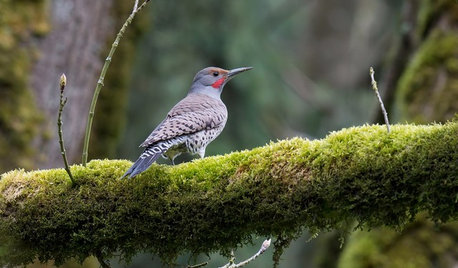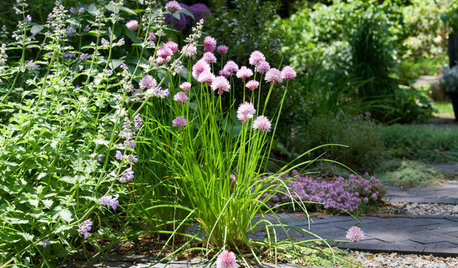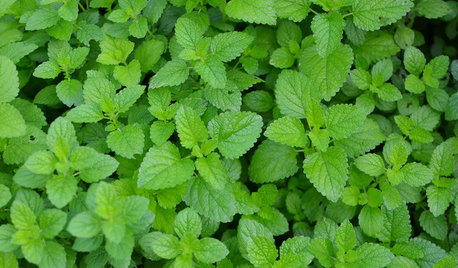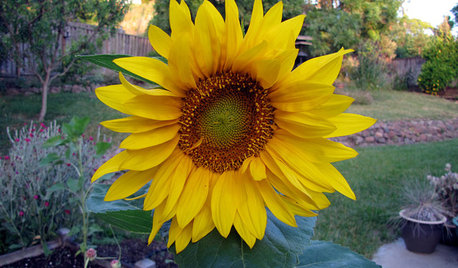Ants on strawberries?
hamiltongardener
16 years ago
Featured Answer
Sort by:Oldest
Comments (34)
gonefishin
16 years agolast modified: 9 years agohamiltongardener
16 years agolast modified: 9 years agoRelated Discussions
Ants in strawberry bed
Comments (15)Good suggestion. It's a great barrier, but doesn't kill many before they catch on. Think of it as a water-less moat. I have been using food grade diatomaceous earth (also called fossil shell flour) for years with great success. But be careful - IT IS HARMFUL IF BREATHED. =================================================================== From Occupational Safety and Health Administration - Material Safety Data Sheet http://www.domyownpestcontrol.com/msds/Insect_Dust_msds.pdf : Health Hazards: Signs and Symptoms of Exposure: Exposure may result in coughing, wheezing, shortness of breath, tightness of chest, irritation of the upper respiratory tract and damage to lung tissue. Medical Condition Generally Aggravated by Exposure: Pre-exiting asthma, bronchitis, emphysema and other lung and respiratory ailments may be aggravated by exposure to dust. Possible effects of single exposure: Acute exposure may cause upper respiratory irritation. Inhalation: Irritations of the upper respiratory tract and lungs may result from accidental or chronic occupational exposure to the dust of this product. Dust may also cause lung damage when inhaled. =================================================================== I use this product in limited situations and not applied to large areas where it will blow around. You have to be careful applying it because it's a very fine powder that blows easily. I don't pour it, I carefully use a spoon on a day with no wind, and wear a good N95 particulate respirator (dust mask) with an exhalation valve. I also use it very sparingly in the back of pantry shelves instead of insecticide. Lasts for years. Outside, I use it in rainproof containers blocking the ant path by suspending the item with chains. Using two long stainless steel eye bolts connected together with a 1" tall nut (they're called rod coupling nuts) through the container sealed with silicone. I use washers and a regular nut against the coupling nut to secure the bottom of the container to the eye bolts. To protect the DE from the rain (it only works when dry) I attach the cover (even a heavy non rusting pie plate will do) to the threaded eye bolt with nuts and washers making sure there is a gap above the container. If the cover touches the container, they will bypass the DE. Then, I connect the chains together so they have no way down the chain without walking through the DE. For the container, don't use plastic that breaks down in the sun, gets brittle and cracks. Use a stainless steel cup, doesn't have to be deep, 2" is fine. Similar in size to a 8 oz cream cheese container. Here in So Cal we have Argentine Ants. Very pesky critters that cooperate with other ants to become the earth's dominant ant. My local colony stretches 600 miles from San Diego to San Francisco. Multiple queens, insecticide just stimulates more nests. (https://en.wikipedia.org/wiki/Argentine_ant). Since they recognize poison bait after a while, you don't eliminate them. You steer them with DE. They did manage to cross a small 2 inch diameter container (1 inch path) of DE by forming a chain of their bodies to get to a hummingbird feeder. Might have been a fluke though, since the path was shortened a bit by a dead beetle carcass. Anyway, to be sure, I suggest at least a 4 inch diameter container forming a 2 inch barrier around the chain. Don't forget, one leaf touching ANYTHING gives them an alternative path. This includes the chain above the DE, so mount the DE container high above the plants. Also run drippers high above the plants, or submerge drip tubing through the DE in the container running from the chain to the edge. Use bailing wire to secure the drip line so it never moves above the DE. Better yet, run the tubing in parallel with the eye bolts through holes in the container sealed with silicone. As for the subject at hand, I haven't bothered to suspend my strawberry containers yet. They're sitting on the ground. Usually the ants are happy with 10-20% so I just grow more plants. Win win. So far the truce has held, but if they get greedy, I'll up my game. (pun intended)...See MoreAnt Colony in Strawberries
Comments (8)I have a problem with fire ants in my stawberries. They ended up eating most of the berries, & did a good job trying to eat me! LOL...but those bites really hurt. I have a terrible problem with fireants in my garden & my whole yard. They ended up eating most of my potatoes (the tubers). I've tried pouring boiling water on the mounds but they just move them elsewhere. And they seem to be everywhere, even many feet from the nearest mound. Does anyone know of an organic method of destroying fireants? I fear my whole property is undermined with them!...See MoreGarden ant infestation
Comments (13)OMG!!! I am speechless to the ENORMOUS infestation of ants I have here at the new house in southwest Ontario! No one warned us of course. Black ants, teeny tiny redish brown ants called farel ants (so I am told) and flying ants by the billions. Every step is a hole literally, as well as the strangest thing I have ever seen! Bigger holes not far from the several small ones which have debris such as leaves, maple keys,tiny sticks or rocks pulled down into the hole to protect the hole (I guess.) They are hard workers and fast! AS WELL AS strange looking stuff that looks like tiny excrement pellets or maybe pellets of dirt, but looks like excrement around some holes with the debris pulled in to close the hole underneath it. Thousands of these entries / exits all over and they are hard when walked on - like stepping on a rock. I have HUGE patches of dirt where there are thousands of ant holes and these strange entrance / exits. The entire patch of dirt also has sand that they dug up on top and GRASS WILL NOT GROW ON THESE PATCHES. I have spent over $2000 on attempts to grow grass, insecticides, boiling water, digging spots up, and pulling out the debris to open the holes and then watering. The flying ants hatch at different times and at dusk. Monday in the back yard. Wednesday in the side yard, etc. I have sprayed as many as I can see as they attempt to fly out, but there are thousands of holes, as I said. PLEASE HELP ME SOMEONE...PLEASE!!!...See MoreAnts in my raised beds
Comments (1)Soak your beds down really well. They will usually move out on their own once you start watering deeply. You may have to water until the soil is completely saturated a few times before all of their tunnels are wet and they get the idea it is time to move out. I had a big pot that it took four or five soakings (until water was backing up to the top of the pot) to get the message across a few years ago....See Morejohn90808
16 years agolast modified: 9 years agogonefishin
16 years agolast modified: 9 years agohamiltongardener
16 years agolast modified: 9 years agojohn90808
16 years agolast modified: 9 years agogonefishin
16 years agolast modified: 9 years agohamiltongardener
16 years agolast modified: 9 years agokubotabx2200
16 years agolast modified: 9 years agoKaren Pease
16 years agolast modified: 9 years agogonefishin
16 years agolast modified: 9 years agoKaren Pease
16 years agolast modified: 9 years agojohn90808
16 years agolast modified: 9 years agogonefishin
16 years agolast modified: 9 years agoKaren Pease
16 years agolast modified: 9 years agogonefishin
16 years agolast modified: 9 years agojohn90808
16 years agolast modified: 9 years agogonefishin
16 years agolast modified: 9 years agoKaren Pease
16 years agolast modified: 9 years agojohn90808
16 years agolast modified: 9 years agokubotabx2200
16 years agolast modified: 9 years agogonefishin
16 years agolast modified: 9 years agoclockwork
16 years agolast modified: 9 years agohamiltongardener
16 years agolast modified: 9 years agojohn90808
16 years agolast modified: 9 years agohamiltongardener
16 years agolast modified: 9 years agojohn90808
16 years agolast modified: 9 years agogonefishin
16 years agolast modified: 9 years agoKaren Pease
16 years agolast modified: 9 years agoesobofh
16 years agolast modified: 9 years agohomegrown54
16 years agolast modified: 9 years agoclockwork
16 years agolast modified: 9 years agodvdfrnzwbr_aol_com
12 years agolast modified: 9 years ago
Related Stories

GARDENING GUIDESBackyard Birds: Healthy Home Habitats for Northern Flickers
These colorful woodpeckers found across the U.S. and Canada love berries, seeds and ants and often nest in deep burrows in trees
Full Story
EDIBLE GARDENSHow to Grow Your Own Sweet Summer Crops
This guide will help any gardener get started on growing the freshest warm-season veggies and berries for summer
Full Story
GARDENING GUIDESHow to Switch to an Organic Landscape Plan
Ditch the chemicals for a naturally beautiful lawn and garden, using living fertilizers and other nontoxic treatments
Full Story
GARDENING FOR BUTTERFLIESGardening for the Bees, and Why It’s a Good Thing
When you discover how hard bees work for our food supply, you may never garden without them in mind again
Full Story
EDIBLE GARDENS8 Surefire Vegetables and Herbs for Beginning Gardeners
Learn the edible plants that are popular and easy to grow in a backyard or container garden
Full Story
FARM YOUR YARDHow to Build a Raised Bed for Your Veggies and Plants
Whether you’re farming your parking strip or beautifying your backyard, a planting box you make yourself can come in mighty handy
Full Story
EDIBLE GARDENS12 Essential Herbs for Your Edible Garden
Make home cooking and drinks even better with herbs plucked from your own backyard or windowsill pot
Full Story
GARDENING GUIDES3 Ways to Revel in Summer Garden Sweetness
Patiently observe what works and doesn’t work in your landscape
Full Story
MOST POPULARSummer Crops: How to Grow Sunflowers
Savor snack-tastic sunflower seeds once the radiant blooms have faded — if the birds have saved you any, that is
Full Story
ORANGEMango: Orange for the Rest of Us
On the fence about decorating with orange? Ease into it with mango, a gentler tone that makes rooms no less striking
Full Story


john90808